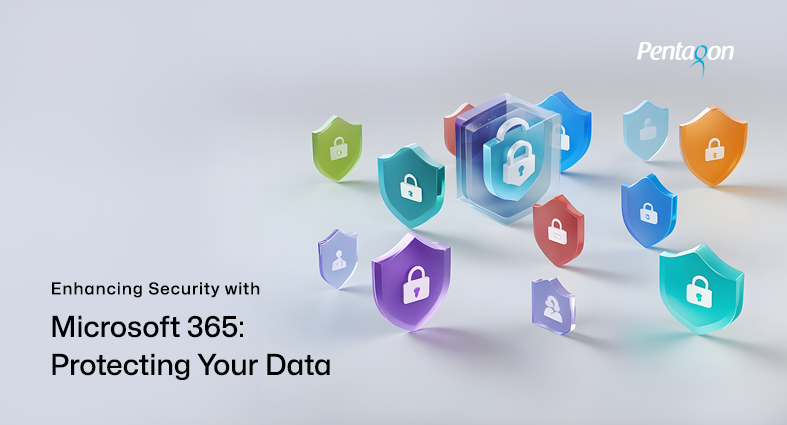Ensuring the security of your website is crucial for hosting success in today’s digital landscape. With the increasing prevalence of cyber threats and the potential risks they pose to businesses and their customers, prioritizing website security is a non-negotiable aspect of managing an online presence. In this article, we will explore the critical importance of website security in the context of hosting and discuss essential security measures that you should implement to fortify your website fortress. In the online realm, websites serve as the face of businesses, acting as the primary interface for interacting with customers, showcasing products or services, and facilitating transactions. Any security breach can have detrimental consequences, including compromised customer data, reputational damage, financial loss, and legal implications. Therefore, investing in robust website security measures is not just a good practice, but a fundamental requirement for safeguarding your business and building trust with your audience.
To ensure hosting success, it is essential to understand the potential threats that websites face. From malicious hackers attempting to exploit vulnerabilities to automated bots scanning for weaknesses, websites are constantly under the scrutiny of digital threats. Furthermore, as technology evolves, so do the tactics employed by cybercriminals, making it crucial to stay updated and proactive in safeguarding your website. To fortify your website fortress and minimize the risk of security breaches, you need to implement a comprehensive security strategy. This involves a multi-layered approach that encompasses various security measures, tools, and best practices. By doing so, you can create a robust defense system that detects and prevents potential threats, mitigates risks, and maintains the integrity and confidentiality of your website’s data. Throughout this article, we will delve into the essential security measures that every website owner should consider. From the implementation of SSL certificates for secure communication to the use of firewalls, malware scanning, website backups, security plugins, and adherence to best practices, we will cover a wide range of strategies and tools to bolster your website’s security.
The Importance of Website Security in Hosting
Website security plays a pivotal role in the success of any online venture. A secure website instills confidence in visitors, establishes credibility, and protects sensitive information. Moreover, hosting platforms that prioritize security measures provide a robust foundation for website owners to build their online presence. Understanding the significance of website security in hosting is the first step towards fortifying your website fortress. Website security is of paramount importance for online businesses. With the increasing prevalence of cyber threats and attacks, protecting your website from potential vulnerabilities has become an essential aspect of maintaining a successful online presence. Website security encompasses a range of measures and practices designed to safeguard your website and its data from unauthorized access, data breaches, malware infections, and other security risks. A breach in website security can have severe consequences for your business, including financial losses, damage to your reputation, loss of customer trust, and legal liabilities. It can result in the compromise of sensitive customer information, such as personal data, payment details, and login credentials. Furthermore, a hacked website can be used to distribute malware, engage in phishing activities, or launch further attacks on unsuspecting users.
Common types of security threats
- Malware Infections: Malware refers to malicious software that is designed to disrupt, damage, or gain unauthorized access to a computer system or network. Malware can infect websites through vulnerable code, unsecured plugins or themes, compromised file uploads, or malicious links. Once a website is infected, malware can be used to steal data, inject malicious code, or deface the website.
- Brute Force Attacks: Brute force attacks involve automated scripts or tools that attempt to guess login credentials by systematically trying numerous combinations of usernames and passwords. This type of attack targets weak or easily guessable passwords and can result in unauthorized access to the website’s admin panel or user accounts.
- Cross-Site Scripting (XSS): XSS attacks involve injecting malicious scripts into web pages viewed by unsuspecting users. These scripts can be used to steal sensitive information, hijack user sessions, or redirect users to malicious websites. XSS vulnerabilities typically arise from inadequate input validation and sanitization practices.
- SQL Injection: SQL injection attacks target websites that use databases to store and retrieve information. Attackers exploit vulnerabilities in poorly constructed SQL queries to execute unauthorized database commands. This can lead to unauthorized access, data manipulation, or even the complete loss of sensitive data.
- Distributed Denial of Service (DDoS): DDoS attacks aim to overwhelm a website’s servers or infrastructure by flooding them with a massive volume of traffic. This flood of requests makes the website unavailable to legitimate users, resulting in downtime and potential financial losses.
Website Security Best Practices
Implementing strong website security practices is essential for protecting your online presence from potential threats and vulnerabilities. One of the fundamental practices is ensuring the use of strong and unique passwords for all accounts associated with your website, including administrative, FTP, and database credentials. Regularly updating your website software and applying patches is crucial as it helps address known vulnerabilities and protects against potential exploits. Utilizing SSL certificates is another critical best practice as they encrypt data transmission between your website and users, ensuring the confidentiality and integrity of sensitive information. Regularly backing up your website is crucial for data recovery in case of any security incidents or system failures. Additionally, regularly monitoring and auditing your website for any suspicious activities, implementing secure coding practices to prevent common attacks like cross-site scripting (XSS) and SQL injection, and maintaining a comprehensive and up-to-date inventory of your website’s software and plugins are vital best practices for maintaining a secure online presence. By following these best practices, you can significantly reduce the risk of security breaches and protect your website and its visitors from potential threats.
Strong Passwords
One of the fundamental aspects of website security is the implementation of strong and unique passwords for all user accounts. Weak passwords are one of the leading causes of unauthorized access and data breaches. It is crucial to emphasize the significance of creating passwords that are difficult for hackers to guess or crack. A strong password should consist of a combination of uppercase and lowercase letters, numbers, and special characters. It should be at least eight characters long, but longer passwords are generally more secure. Instead, opt for random combinations of characters that are difficult to associate with you or your business. Furthermore, it is essential to use a unique password for each online account you have. Reusing passwords across multiple accounts increases the risk of a single compromised account leading to unauthorized access to other accounts. Consider using a reputable password manager to securely store and generate complex passwords for each account. This not only ensures better security but also simplifies password management.
Regular Software Updates and Patching
Keeping your website software up to date is vital for maintaining its security. Developers release updates and patches to address vulnerabilities and fix any weaknesses that may be exploited by attackers. These updates may include bug fixes, security patches, and feature enhancements. By promptly applying these updates, you minimize the risk of potential vulnerabilities being exploited. Software patching is particularly crucial because vulnerabilities can arise due to coding errors, outdated libraries, or other software-related issues. Attackers actively seek out these vulnerabilities to gain unauthorized access or execute malicious activities. Failing to install patches promptly leaves your website exposed to potential attacks. To ensure effective software updates and patching, regularly check for updates from your content management system (CMS), plugins, themes, and any other software components used in your website. Enable automatic updates whenever possible, as they ensure that your website remains protected without requiring manual intervention. However, it is recommended to thoroughly test updates in a staging environment before applying them to the live website to avoid any compatibility issues.
Using SSL Certificates
Secure Sockets Layer (SSL) certificates play a crucial role in securing data transmission between a user’s browser and your website’s server. SSL certificates encrypt the information exchanged, making it unreadable to anyone who intercepts it. This encryption prevents unauthorized individuals from accessing sensitive data, such as login credentials, personal information, or financial details. When a website has an SSL certificate installed, the URL changes from “https://” to “https://,” where the “s” stands for secure. This visual indicator, usually accompanied by a padlock icon, provides users with confidence that their data is protected during their interaction with the website.
There are different types of SSL certificates available, including Domain Validated (DV), Organization Validated (OV), and Extended Validation (EV) certificates. DV certificates are the most basic and commonly used, verifying the ownership of the domain. OV certificates provide additional validation of the organization’s identity, while EV certificates offer the highest level of assurance by conducting rigorous verification of the organization’s legal existence and physical location. SSL certificates offer several benefits beyond data encryption. They also contribute to improving your website’s search engine rankings, as major search engines prioritize secure websites in their algorithms. Additionally, SSL certificates build trust and credibility with your website visitors, assuring them that their sensitive information is protected.
Essential Security Tools and Technologies
Security Tools and Technologies play a crucial role in fortifying your website against potential threats and vulnerabilities. One such tool is Firewall Protection, which acts as a barrier between your website and unauthorized access attempts, effectively filtering incoming and outgoing network traffic based on predefined security rules. Firewalls can be implemented at the network level or as a software solution within your hosting environment. Another vital security tool is Malware Scanning and Removal, which helps detect and eliminate malicious code or malware that can compromise your website’s integrity. Regular malware scans, using antivirus software or online scanning tools, can identify any potential threats and enable prompt action to mitigate them. Additionally, implementing Website Backup and Restoration mechanisms ensures that your data is securely stored and can be restored in the event of a security breach or data loss. Regular backups protect against data corruption, hacking attempts, and accidental deletion. By utilizing these essential security tools and technologies, you establish a strong defense against potential threats and maintain the integrity and security of your website and customer data.
Firewall Protection
Firewalls play a critical role in safeguarding your website against unauthorized access and malicious activities. Acting as a barrier between your website and the external network, firewalls monitor incoming and outgoing traffic, analyzing it for potential threats and blocking any suspicious or unauthorized attempts to access your website. There are several types of firewalls available, each with its implementation for website security. Network firewalls, also known as hardware firewalls, are placed at the network level and can filter traffic based on IP addresses, ports, and protocols. They are often implemented by hosting providers or on network devices such as routers or dedicated firewall appliances.
Another type of firewall is the host-based firewall, which is installed on the web server itself. This software-based firewall monitors traffic specifically to and from the server, providing an additional layer of protection. Host-based firewalls can be configured to allow or block traffic based on predefined rules, giving you more control over incoming and outgoing connections. Web application firewalls (WAFs) are designed to protect against attacks targeting specific vulnerabilities in web applications. They analyze the HTTP and HTTPS traffic and apply security rules to filter out malicious requests, such as SQL injections, cross-site scripting (XSS) attacks, and other web-based threats. WAFs can be implemented as a hardware appliance, software application, or as cloud-based service.
Malware Scanning
Regular malware scans are essential for detecting and removing malicious code that could compromise your website’s security and functionality. Malware refers to any software designed to harm, exploit, or gain unauthorized access to a system. It can range from viruses and worms to ransomware and spyware. To effectively scan for malware, you can utilize antivirus software and online scanning tools. Antivirus software is specifically designed to identify and eliminate malware from your system. It scans your website files, databases, and server for known malware signatures, suspicious patterns, and behavior. It can also provide real-time protection, actively monitoring incoming and outgoing traffic to block potential threats. Online scanning tools offer an additional layer of security. These tools are usually provided by security companies and can perform comprehensive scans of your website from an external perspective. They can detect vulnerabilities, malware infections, outdated software versions, and other security issues that may have been missed by your internal scans.
Website Backup and Restoration
Regular website backups are crucial for data recovery in case of a security breach, server failure, or any other unexpected event that could lead to data loss. By creating backups of your website’s files, databases, and configurations, you ensure that you have a recent and complete copy of your website that can be restored in case of an emergency. There are various methods and tools available for creating and restoring website backups. Your hosting provider may offer automated backup solutions that allow you to schedule regular backups and easily restore your website to a previous state. Alternatively, you can use backup plugins or software specifically designed for website backups. These tools often provide options for incremental backups, which only backup changes made since the last backup, reducing storage requirements and backup time.
It’s important to store backups in secure locations, both on-site and off-site, to ensure their availability and integrity. On-site backups can be stored on separate servers or devices within your infrastructure, while off-site backups can be stored on cloud storage or external storage devices. Storing backups off-site adds an extra layer of protection, as it safeguards your data from physical damage or theft. Regularly testing the restoration process is also crucial to ensure that your backups are functional and can be successfully restored when needed. By having a reliable backup and restoration strategy in place, you can quickly recover your website and minimize the impact of any security incidents or data loss.
Website Security Plugins: Enhancing Protection
Website security plugins play a crucial role in enhancing the security of your website by providing an additional layer of protection against potential threats. These plugins are designed to identify and mitigate security vulnerabilities, detect malware, and prevent unauthorized access to your website. They offer a range of features and functionality that contribute to a robust security framework. Website security plugins are specifically developed to address the unique security needs of websites. They are typically easy to install and configure, making them accessible even to users with limited technical expertise. These plugins integrate seamlessly with your content management system (CMS) and actively monitor your website for any suspicious activities or vulnerabilities. Website security plugins act as a proactive defense mechanism, continuously scanning your website for potential threats. They provide real-time monitoring, malware detection, and vulnerability assessment to identify and resolve security issues promptly. These plugins can also help in implementing essential security practices, such as enforcing strong passwords and implementing firewall rules.
Popular website security plugins
- Wordfence: Wordfence is a comprehensive security plugin for WordPress websites. It provides firewall protection, malware scanning, login security, and IP-blocking features. Wordfence also offers real-time threat intelligence, which helps in identifying and mitigating emerging security risks.
- Sucuri Security: Sucuri Security is a widely used website security plugin known for its robust malware scanning and removal capabilities. It offers features like file integrity monitoring, blacklist monitoring, and post-hack security actions. Sucuri Security also includes a website firewall option for added protection.
- iThemes Security: Formerly known as Better WP Security, iThemes Security is a feature-rich plugin that covers various aspects of website security. It includes features such as brute force protection, two-factor authentication, database backups, and security logging. iThemes Security also provides security checkups and suggests specific measures to improve your website’s security.
Key Features and Functionality
- Malware Scanning and Removal: Website security plugins conduct regular scans to identify and remove any malware or malicious code present on your website. They provide notifications and options to remove or quarantine infected files.
- Firewall Protection: Security plugins often include a firewall feature that acts as a barrier against unauthorized access and blocks malicious traffic from reaching your website.
- Login Security: Plugins may offer features like two-factor authentication, CAPTCHA, and login attempt limiting to prevent brute force attacks on user login credentials.
- Monitoring and Reporting: Security plugins provide detailed reports on security events, such as failed login attempts, malware detections, and suspicious activities. This helps you stay informed and take appropriate action.
- Blacklist Monitoring: Some plugins monitor blacklists and alert you if your website’s IP address or domain gets blacklisted. This feature helps you address any issues promptly and maintain a good reputation.
- Customization Options and Additional Security Measures Offered: Website security plugins often provide customization options to align with your specific security requirements. These options may include:
- Security Hardening: Plugins may offer recommendations or suggestions to harden your website’s security by enabling specific settings or implementing additional security measures.
- Notification Preferences: You can customize the types of notifications you receive, such as email alerts or dashboard notifications, based on your preferences.
- User Role Management: Plugins may allow you to define user roles and their access permissions to ensure granular control over who can perform certain actions on your website.
Conclusion
Securing your website is an ongoing process that requires diligence and proactive measures. By implementing essential security measures, such as SSL certificates, firewall protection, malware scanning, website backups, and security plugins, you can fortify your website fortress and protect your digital assets from potential threats. Remember to stay vigilant, keep your software and plugins up to date, and educate yourself about emerging security risks. With a robust security strategy in place, you can achieve hosting success, instill trust in your visitors, and navigate the digital landscape with confidence. Choose Pentagon’s reliable and robust web hosting service today. Our team of experts will provide you with essential security measures, including SSL certificates, firewall protection, malware scanning, and backup solutions, to safeguard your online presence. Don’t compromise on security – trust Pentagon to build a fortress around your website. Visit our website or contact us now to get started!
services
Feel free to send us a message.
Please, share your thoughts, and let's chat over a cup of tea.




















